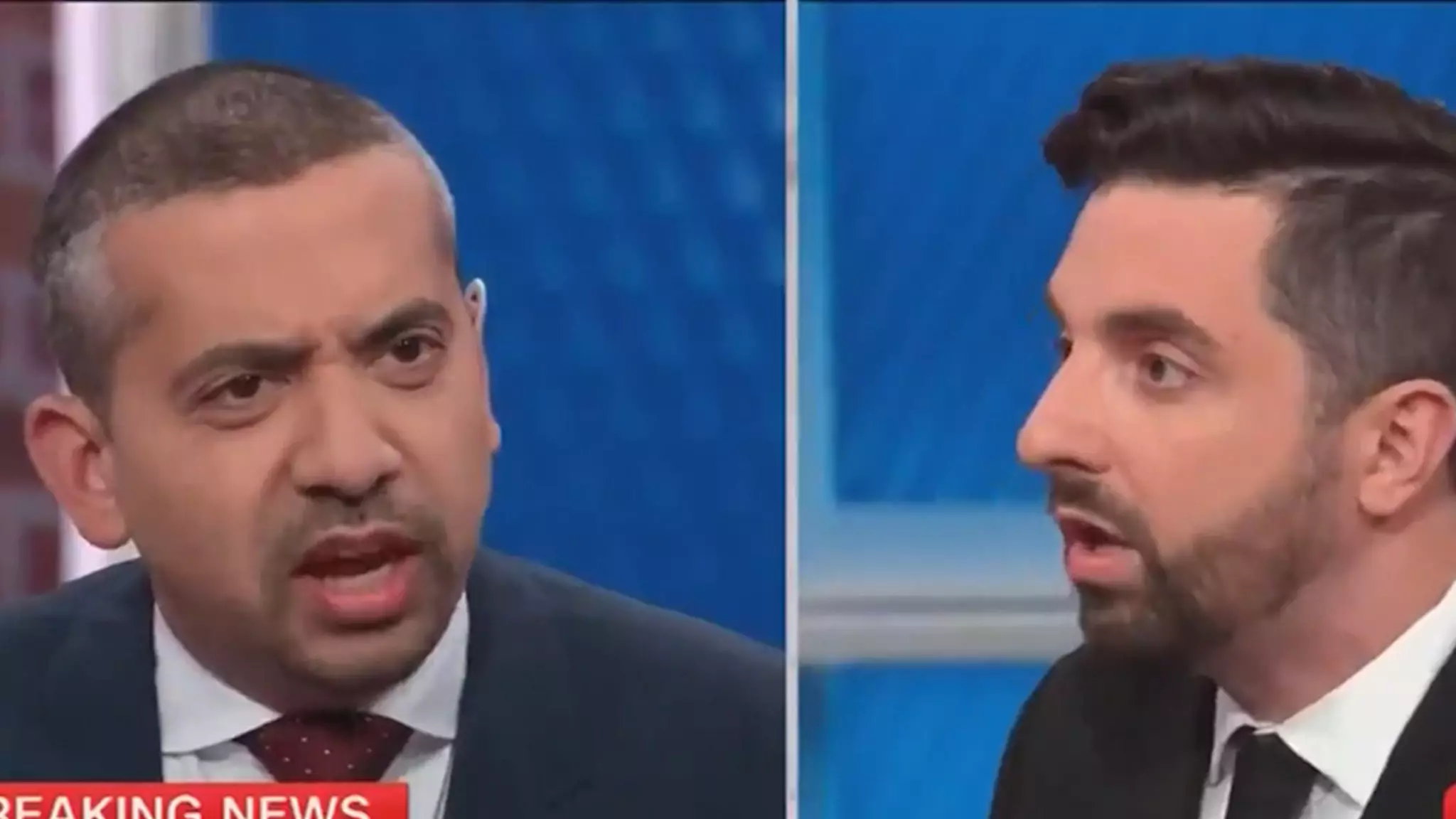The recent incident involving political commentator Ryan Girdusky on CNN has ignited a firestorm of controversy, casting a spotlight on issues of race, media ethics, and the nature of political discourse in America. During an episode of “NewsNight With Abby Phillip,” Girdusky made a remark that was perceived by many, including his fellow panelist Mehdi Hasan, as racially charged and offensive. As the dust settles, it becomes clear that both the remarks made and the subsequent reactions encapsulate the current state of political commentary and the media ecosystem.
The controversy erupted when Girdusky remarked, “I hope your beeper doesn’t go off,” in response to Hasan expressing support for Palestinians during a tense discussion about antisemitism and political rallies. This comment was not just an off-the-cuff jab; it referenced a historical event where Hezbollah members were targeted and killed by remote detonations linked to jets. Girdusky’s attempt to insinuate Hasan’s supposed affiliations with terrorist organizations was not only misguided but also further complicated any meaningful dialogue surrounding the contentious issue of the Middle East and its representation in American politics.
In the aftermath of his comment, CNN acted swiftly, confirming that Girdusky would no longer appear on the network. Abby Phillip, the show’s host, condemned Girdusky’s remarks and expressed her regrets in a subsequent video. This was a clear signal from CNN that there was “zero room for racism or bigotry” within its programming—a stance that echoes wider societal demands for accountability in the media.
In an interview with TMZ, Girdusky defended his remarks, characterizing them as a joke taken out of context. He projected a victim mentality, claiming that his political identity as a Republican made him an easy target for criticism. He expressed a “go big or go home” approach to political commentary, seemingly reveling in the controversy rather than expressing remorse for the pain his words may have caused.
This reaction encapsulates the persistent culture of outrage that dominates today’s media landscape—where statements, jokes, and opinions are often hurled back and forth without consideration for the larger implications they carry. Girdusky’s assertion that no one would remember the incident shortly speaks volumes about the fleeting nature of news cycles and outrage; yet, it overlooks the real harm that such discourse can perpetuate, particularly in a highly polarized environment.
Media Responsibility and the Quest for Nuance
The Girdusky incident forces us to examine the media landscape more broadly. With the rise of partisan commentary and social media echo chambers, the space for nuanced discussions has significantly diminished. Commentators like Girdusky and Hasan find themselves in an environment where bombastic remarks often garner more attention than thoughtful analysis. This prioritization of sensationalism undermines the potential for genuine dialogue about complex issues such as race, identity, and international politics.
CNN’s decisive action against Girdusky not only reinforces its commitment to a more respectful discourse but also serves as a reminder of the media’s role in shaping public conversation. By setting a standard against racially insensitive remarks, networks can encourage deeper engagement with pressing social issues instead of perpetuating divisiveness.
Ultimately, the events surrounding Ryan Girdusky’s comments highlight a crucial intersection between politics and media representation. As society grapples with questions of race, identity, and power, it is imperative for all stakeholders—journalists, commentators, and audiences—to engage in discussions that promote understanding rather than division. The ability to provoke, while often celebrated in political commentary, should never overshadow the absolute necessity to foster an inclusive environment for discourse.
As Girdusky himself noted, the outrage machine in media tends to thrive on sensationalism, which can distract from substantive discussions that matter. The pathway forward requires a collective commitment to not just sharing opinions, but engaging critically with the ideas behind those opinions—an effort that can only benefit society as a whole.

